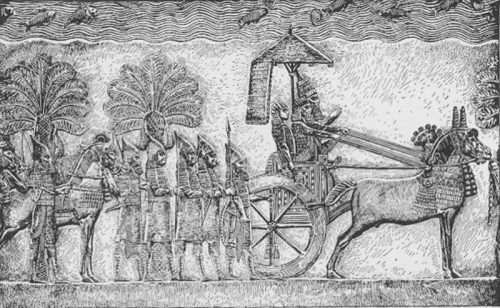Joseph in power in Egypt. To the second highest position in the nation. In this Parsha he brings his extended family to Egypt and saves all Egypt and the surrounding lands from starvation from a great famine.
Moving his extended family to Egypt was a major task. It protected them from the famine and placed them in a land to prosper. His father, Jacob, did not want to move from the promised land of Canaan, where he had been instructed to settle by his forefathers and G~d. He would not have moved without the extra-ordinary circumstances of his son Joseph being found alive and in the second most powerful position in Egypt. Joseph has also been given wisdom and insight from G~d to prepare for the approaching famine.
Joseph was working on a plan to move the family via manipulation, which we see in last weeks Parsha. Now he is forcing the transition by arranging an accusation against his brother Benjamin, which would hold Benjamin in prison and requiring his father to personally come to bail him out of jail. The plan is all set, and then Judah, the brother who had compromised to sell Joseph, and lived with the grief he had caused, steps up. Judah appeals on the basis of compassion, fairness, and justice, to the point of being willing to exchange his life for Benjamin. At this point Joseph realizes he is extracting revenge on his brothers, using his power to manipulate events. He relents and repents, changing from the hardened leader to compassionate brother.
The Pharaoh is happy when he hears of the joy for Joseph, and invites the extended family to move to the best part of Egypt with protected status. He even sends wagons, advanced technology at that time, to move them quickly. Pharaoh extends blessing to Joseph and his extended family, even honoring the father, Jacob, with a private audience. Pharaoh is grateful to Joseph for his wise and diligent work serving in Egypt, and extends the opportunity for Joseph’s brothers to serve as royal officers, in charge of all his animals. This is special, protected status for non-Egyptians.
The Parsha finishes up with a lesson on Governance and fair business practices. It presents a contrast between the fair handed treatment of Israel by the Pharaoh, with the harsh treatment of the Egyptians and surrounding nations by Joseph. The Rashbam criticizes Joseph as ruthless, comparing his dispossessing the people of their lands to the actions of Sennacherib, the infamous Assyrian king in 2 Kings 18. Joseph uses the business advantage he has from Divine foreknowledge to enslave all Egypt and the surrounding nations. Year by year, as the famine progresses, he aquires all the money, livestock, land, and lives of all the peoples, reducing them to serfs. He even resettles them to break their historic ties with their family estates and towns. As the famine ends, they remain as perpetual serfs, required to pay a 20% tax from their gross income. Oh that Joseph would have done this another way, and left the people with dignity and honor. The long term result was the next generation rose up and enslaved Israel as retribution for the hardships inflicted by Joseph. Yes, Joseph saved their lives, but the price of losing their dignity was unfair.
From this, and the prophets, we have derived Halakhah to protect the disadvantaged. What can we learn for ourselves from these examples? Fair and honest business practices! The best business deal is not making the most money. It is serving each other in a transaction in which both parties are blessed, and they can develop a continuing relationship of fair and honest trade, with mutual benefit. Wisdom and insight from G~d does not always result in good business nor relationships. We can also learn that peoples without biblical knowledge can exhibit compassion and good business practices, as exhibited by the Pharaoh.
The photo is from the palace of Sennacherib http://en.wikipedia.org/wiki/File:Sennacherib.jpg
Here are some study notes:
Parsha vaYigash 5771.pdf
Parsha vaYigash 5771.doc
